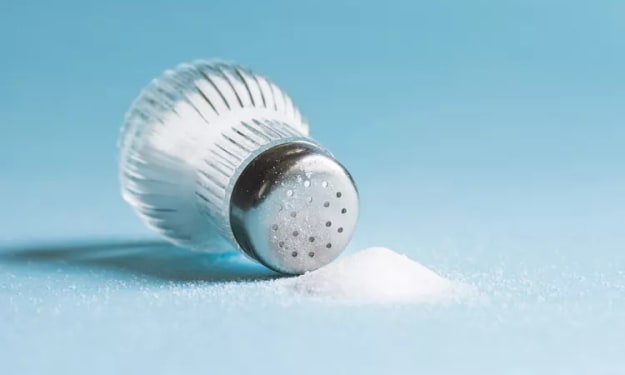Burning mouth syndrome, Mouth heat may be due to mouth burns
Tongue pain, mouth burn, sore mouth (glossodynia)
The condition is also called Burning mouth syndrome. Quite a common disease is found especially in middle-aged and older women.
About mouth burning:
What is meant by mouth burning?
Mouth burn is a disease characterized by burning pain in the oral cavity or tongue without any reasonable explanation for the pain. Attempts have been made to find links between burnout and other diseases, but so far no clear causal link has been found.
According to one theory, the oral cavity is caused by damaged nerve cells, more specifically the cerebral nerves that innervate the oral cavity. Other explanations highlighted include mental health problems such as anxiety and depression, lack of individual substances (such as zinc and vitamin B), fungal infections, or changes in saliva or saliva production. For psychological problems, it is difficult to determine whether pain provokes these problems or whether there is a mental condition behind the mouth pain.
Mouth burn is more common in women and often occurs during menopause. Therefore, it is suspected that hormonal changes would affect the disease.
Painful symptoms
The condition is characterized by pain in the oral cavity. It is usually at the tip of the tongue, at the front of the palate and / or inside the lower lip.
The exact location of the pain varies slightly from person to person. The pain is located only in the oral cavity and does not affect the skin of the face. Pain is often compared in intensity to a toothache and is often described as burning your mouth with a hot drink.
The disease can also manifest itself in the following ways:
- The mouth feels dry.
- Altered taste (often bitter or metallic taste in the mouth).
- Numbness or tingling in the oral cavity.
For many, the pain worsens during the day, while others experience the pain as constant and permanent. Pain can affect quality of life.
Other explanations for oral pain may include:
The diagnosis is made on the basis of the symptoms
The doctor can conclude the diagnosis by assessing:
- Previous illnesses and ailments.
- Symptoms.
- Habits / bad habits in relation to the oral cavity.
The assessment is supplemented, if necessary, by blood samples and other tests.
Mouth burn treatment
When a doctor finds a cause of pain, the matter is treated as needed, but if no specific cause is found, some individual medications may be helpful. In this case, medicines used to treat epilepsy or depression that have been shown to have a good analgesic effect can be used.
Studies show that cognitive-behavioral therapy (CBT) can affect in both the short and long term. The form of therapy is often used for psychiatric illnesses and chronic pain conditions. It is believed that CBT may enhance the effect of other therapies being tested.
You can also try to relieve the symptoms with self-care and changes in habits.
- Try to avoid things that irritate the mouth - for example, alcohol-based mouthwashes, cinnamon, mint, and tobacco smoke.
- An easily removable prosthesis or implant in the mouth may be good to take off overnight.
- Avoid using toothpaste containing sodium lauryl sulfate.
- Sugar-free chewing gum or sucking on ice cubes can relieve some of the symptoms.
The illness has sparked debate and there is no consensus on the reason. This can lead to the patient being at risk of being referred to different specialists and the patient passing from one doctor to another without receiving effective treatment. This can be very frustrating and in some cases can give the feeling that the patient is not believed or that he is exaggerating his symptoms.
The mouth burns slowly
The forecast is positive. The problem can be treated and that the pain usually decreases and disappears over time, but this can unfortunately take months or years.
Tongue pain, mouth burn, sore mouth (glossodynia)
The key
- The causes of oral pain are examined by careful examination of the oral mucosa, dentition and tongue, as well as by mapping the background factors and, if necessary, by laboratory tests.
- There are many causes of mouth pain, and there is not always an unequivocal cause.
- Mouth pain can be caused by a mechanical cause, a general illness, a deficiency condition, a mental cause, or an adverse drug reaction.
General
A sore mouth is a fairly common ailment, especially in middle-aged and aging women. Middle-aged women have mouth pain five times more often than the rest of the population.
Mouth pain is often present in the cheeks and tongue. The sense of taste can become abnormal. There may be a metallic taste in your mouth, and you may feel whistles like an electric shock in your mouth. Mouth pain is often accompanied by a visible change, but mouth pain can also occur without a noticeable visible change.
Causes of mouth pain
There are many causes of mouth pain. There is not always an unequivocal reason for the mouthpiece, but it can be a multifaceted problem. Smoking, alcohol consumption, hot and heavily flavored foods, constant use of mouthwash and lozenges, and dry mouth (see Dry Mouth ) predispose to mouth and tongue pain.
Dry mouth can be caused by mouth breathing, salivary gland diseases, Sjögren's syndrome, or drugs that reduce saliva secretion, such as tricyclic antidepressants and interscholastic used to urinate.
The dentist should check the bite, the suitability of the denture, treat any dental and gingivitis (see Gingivitis ) and remove tartar.
Oral tumors, leukoplakia, or white spot in the mucosa, groin, cartilage, and atrophy of the tongues and mucosal ulcers (aphthous, herpes, red lichen, multifaceted erythema, and pemphigus) are other local causes of oral pain.
A Shiny, sore tongue can be a sign of a lack of B vitamins or iron or a yeast infection. The thrush is a white cover in children caused by the yeast Candida albicans; in adults, a white-covered mouth is rare. In an adult with Candida infection, the oral mucosa is angry red and inflamed.
Mouth pain may also be caused by an underlying disease such as celiac disease (see celiac disease ), thyroid dysfunction, Sjögren's syndrome (see Sjögren's syndrome (primary) ), reflux disease, diabetes, medication or hematological disease, neurological cell disease, or neurologic cell MS and tumors. Mouth pain may also be a psychiatric symptom.
A sore mouth is said to be idiopathic when there is nothing special in the mouth, the probable cause is not shown in the tests (eg thyroid tests, blood sugar, iron levels, folic acid, vitamin B 12 are normal), the disease is not due to menopausal hormonal disorders and other possible mouth pain. has been ruled out in studies.
When to see a doctor?
If there is an ulcer or visible change in the mucous membranes of the mouth or tongue that does not go away in a couple of weeks, you should see a doctor. If a sore mouth starts to interfere with eating and quality of life, it should be clarified with a doctor.
Oral pain treatment and self-care
Because there can be numerous causes, one or more, of underlying mouth and tongue pain, it is important to identify possible causes and work to treat them. It is a good idea for the dentist to check the bite, the suitability of the prostheses and any mechanical causes. It is a good idea to check with your doctor for any medications that cause dry mouth or mouth pain, to map out the possibility of general illnesses, mental illnesses, and deficiencies that cause mouth pain, and to plan good treatment for these.
Dry mouth can be reduced by rinsing your mouth frequently with water, chewing xylitol chewing gum, or sucking on xylitol lozenges (see Dry Mouth Self-Care Instructions for more details Dry Mouth ). Changing toothpaste to one that does not contain sodium lauryl sulfate (a foaming agent) may ease the symptom.
If the dentist's procedures and self-care do not help enough, your GP or gynecologist may assess the need for menopausal hormone therapy. In awkward, disabling cases, antidepressants or mouth anesthetics can be used.
About the Creator
Sarfraz Hussain
I am a professional journalist and I work as a writer and reporter in a national newspaper. The purpose of my life is to help people. Useful Tips on Health Care to Improve the Lives of an Ordinary Man.






Comments
There are no comments for this story
Be the first to respond and start the conversation.